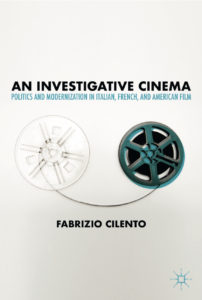An Investigative Cinema

- Offers a new approach that blends and expands upon national cinema studies, the author theory, and genre theory
- Analyzes films and television series across European and American traditions, such as The Battle of Algiers, Even the Rain to Homeland, No, and The Parallax View, Gomorrah
- Explores the careers of actors Gian Maria Volonté and Gael García Bernal in the light of transnational stardom theory
- Examines the centrality of investigative cinema in relation to the historical conjunctures of the “economic miracle” in Italy, the simultaneous decolonization and reordering of culture in France, the waves of globalization and neoliberalism in post-dictatorial Latin America, and the post-Watergate, and post-9/11 climate in US society
Links:
This book traces the development of investigative cinema, whose main characteristic lies in reconstructing actual events, political crises, and conspiracies. These documentary-like films refrain from a simplistic reconstruction of historical events and are mainly concerned with what does not immediately appear on the surface of events. Consequently, they raise questions about the nature of the “truth” promoted by institutions, newspapers, and media reports. By highlighting unanswered questions, they leave us with a lack of clarity, and the questioning of documentation becomes the actual narrative. Investigative cinema is examined in relation to the historical conjunctures of the “economic miracle” in Italy, the simultaneous decolonization and reordering of culture in France, the waves of globalization and neoliberalism in post-dictatorial Latin America, and the post-Watergate, post-9/11 climate in US society. Investigative cinema is exemplified by the films Salvatore Giuliano, The Battle of Algiers, The Parallax View, Gomorrah, and Zero Dark Thirty.
